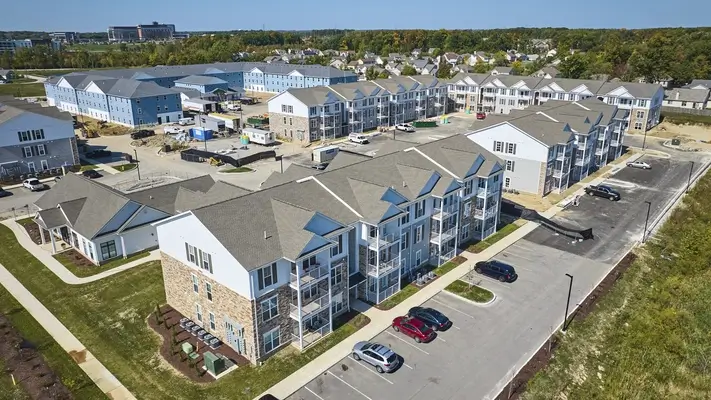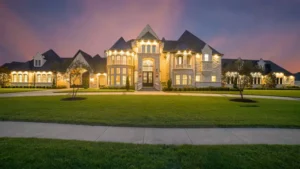VA loan eligibility for different types of properties depends on factors such as occupancy, property condition, and whether the building meets VA approval guidelines.
Single-family homes often have the easiest qualification criteria, while condos must be on the VA-approved list.
Multi-unit homes allow you to live in one unit and rent out others.
The property type you pick can influence your financing terms and investment opportunities.
Introduction to VA Loans
If you are an active-duty service member, veteran, or an eligible surviving spouse, the VA loan program can help you secure a mortgage with competitive terms. You benefit from lower interest rates, no private mortgage insurance (PMI), and zero down payment options. Yet, not every property automatically qualifies. To use your VA benefit wisely, you need to understand how eligibility differs based on property type.
Below, we’ll walk through the main property categories and clarify how each works within VA loan requirements. By recognizing which properties are allowed—and any extra steps you must take—you can streamline your homebuying process and avoid last-minute surprises. Let’s explore how you can leverage your VA entitlement no matter which type of real estate sparks your interest.
Who Qualifies for a VA Loan?
Before diving into property specifics, let’s briefly cover general VA loan eligibility for borrowers. You typically qualify if:
- You served 90 consecutive days on active duty during wartime, or
- You served 181 days on active duty during peacetime, or
- You have completed six years of service in the National Guard or Reserves, or
- You are the spouse of a military member who died in the line of duty or due to a service-related disability.
To confirm your eligibility, you need a Certificate of Eligibility (COE) from the Department of Veterans Affairs. Lenders rely on this document to verify your entitlement. Also, while the VA does not enforce a specific credit score requirement, most private lenders want to see a fair to good score—often at least 620.
Overview of Property Eligibility
A common misconception is that VA loans cover all properties equally. While single-family homes are usually the easiest to finance, certain guidelines come into play for condos, townhomes, multi-unit residences, and even manufactured homes. The VA’s overarching intent is to ensure the property is safe, structurally sound, and primarily used as your primary residence.
In most cases, you cannot use a VA loan to purchase an investment property that you do not plan to occupy. However, there are exceptions for multi-unit homes where you live in one unit. It’s crucial to understand these property-specific rules so you can plan accordingly.
Single-Family Homes
Single-family homes tend to be the most straightforward option. VA lenders typically expect:
- Primary occupancy: You or your spouse must move into the property within 60 days of closing.
- Property condition: The home must meet the VA’s Minimum Property Requirements (MPRs), which focus on safety, sanitation, and structural integrity.
- Reasonable value: An appraisal verifies that the property’s value justifies the loan amount.
As long as the home meets these conditions, you can take advantage of zero down payment, no PMI, and favorable loan terms. Many service members find single-family homes the simplest path to homeownership using their VA entitlement.
Condominiums and Townhomes
Buying a condo or townhome with a VA loan can be slightly more complex. The VA must approve the entire condominium complex or the homeowners’ association (HOA). The approval process verifies that the building and HOA finances are stable enough to safeguard your investment.
Additionally, some condos may have rules limiting rentals or other occupancy restrictions. Ensure you review the HOA guidelines. The good news is that once the development is VA-approved, the process usually mirrors that of a single-family home. If you locate a condo you love, double-check the VA-approved condo database before making an offer.
| Property | Approval Needed | Occupancy Requirement |
|---|---|---|
| Single-Family Home | No project approval required | Must occupy within 60 days |
| Condo/Townhome | Must be on VA-approved list | Must occupy within 60 days |
Multi-Unit Properties (2-4 Units)
If you dream of living in one unit and renting out the others, you can use a VA loan to buy a 2-4 unit property. The VA still requires you to occupy one unit as your primary residence. Renting out additional units can help offset your mortgage, potentially creating an excellent wealth-building opportunity.
However, not all lenders are comfortable financing multi-unit homes, and you may need a stronger financial profile or landlord experience to reassure them. Your debt-to-income (DTI) ratio comes under particular scrutiny. The rental income from the other units might help you qualify, but be prepared to show proper documentation and meet the home’s Minimum Property Requirements.
Manufactured Homes
Manufactured homes—often called mobile homes—can be financed with a VA loan, but the guidelines are more stringent. Lenders often apply additional requirements, such as:
- The home must be permanently attached to a foundation.
- The home must have been built after June 15, 1976.
- The property must meet local building codes.
Because manufactured homes depreciate faster than traditional homes, not all lenders offer VA financing for this property type. You also need to be ready for specific appraisal rules and higher interest rates. If you do find a lender, ensure you understand these unique conditions before committing.
Modular Homes
Modular homes differ from manufactured homes in that they are typically assembled off-site but must conform to state, local, or regional building codes. This distinction can make them easier to finance with a VA loan than a manufactured home.
Still, the home must be permanently affixed to a foundation and meet the VA’s MPRs. Appraisal requirements apply as they would for a single-family dwelling. If a modular home is constructed and installed per building standards, many lenders will treat it similarly to a site-built house, offering you broad access to the benefits of VA financing.
Co-Ops
Cooperative housing (co-ops) can be challenging to finance with a VA loan. Unlike a condominium where you own individual unit space, a co-op means you own shares in a corporation that gives you the right to occupy a particular unit. Due to the legal complexities and the corporation’s overall financial standing, the VA rarely guarantees loans for co-ops.
While this doesn’t mean you can never purchase a co-op with a VA loan, you’ll encounter more hurdles and fewer lender options. Before making an offer on a co-op, speak with lenders who have experience in this area to see if a VA-backed mortgage is feasible.
Farm Residences
If you’re looking at a rural property with agricultural land, the VA loan can still be an option. The catch is that the VA loan focuses on the residence portion of the property. In other words, you cannot finance the business side of farming operations through a VA mortgage.
The home itself must meet standard VA guidelines, such as being your primary residence. The acreage is not necessarily a deal-breaker, but the lender will likely require an appraisal that separates the value of the residence from any commercial use. As long as the living area can be clearly identified and meets VA requirements, you have a solid chance of approval.
Mixed-Use Properties
Occasionally, you may find a home that serves both as a residence and a small business, such as a property with a storefront on the ground floor and living quarters upstairs. The VA typically allows this scenario if you primarily use the building for residential purposes, and the commercial space does not interfere with the home’s livability.
Each lender has its own approach for evaluating mixed-use property. The best practice is to confirm upfront whether they’ll finance a VA loan in that context. In most cases, the property’s residential value should far exceed any commercial portion to gain VA approval.
Step-by-Step: How to Confirm Property Eligibility
To ensure your chosen property meets VA guidelines, follow these steps:
| Step | Action |
|---|---|
| 1 | Obtain your Certificate of Eligibility (COE) from the VA. |
| 2 | Choose a lender experienced with VA loans; ask about their property requirements. |
| 3 | Verify the property’s eligibility, especially if it’s a condo or multi-unit. |
| 4 | Schedule a VA appraisal to confirm value and condition meet MPRs. |
| 5 | Address any repair requests before closing. |
| 6 | Complete closing and move into your new home. |
Common Pitfalls to Avoid
- Assuming all condos are approved: Never assume a property is VA-approved without checking. This mistake can lead to wasted time.
- Overlooking property condition: Even if a home is a perfect fit, it must meet Minimum Property Requirements. Budget for any required repairs.
- Confusing vacation home eligibility: VA loans are for primary residences, not second homes or timeshares.
- Ignoring lender overlays: Some lenders have stricter requirements than the VA. Always ask about additional guidelines.
Dodging these pitfalls saves you both time and stress. Stay proactive: check property approvals in advance, be realistic about any repairs, and communicate openly with your lender about your chosen property type.
Frequently Asked Questions
1. Can I use a VA loan to buy a second home or vacation home?
VA loans are primarily for your main residence. You must occupy the property as your primary home within 60 days. Using a VA loan solely for a second home or vacation property is generally not allowed. However, if you convert your first VA-financed residence into a rental, you may be able to restore or reuse entitlement under specific conditions.
2. Do condos need special VA approval?
Yes. The entire condo development must be on the VA-approved list. This process ensures the building and its homeowners’ association meet VA standards. If your desired condo isn’t approved, you or your lender might request approval. Checking the VA-approved condo database is an easy first step before submitting an offer on any condo unit.
3. Are there property condition requirements I should know about?
The VA’s Minimum Property Requirements (MPRs) mandate that homes be safe, structurally sound, and sanitary. This includes functional utilities, a reliable roof, and no major structural defects. Although these MPRs protect you as a buyer, they might require sellers to complete certain repairs. Always factor potential repair costs into your homebuying plan.
4. What’s different about getting a VA loan for a multi-unit property?
For a 2-4 unit property, you must occupy one of the units as your primary home. Lenders often look more closely at your finances, credit score, and landlord experience. The appraisal will also evaluate the overall condition of the entire property. You can rent out extra units, but each lender might have different rules about counting rental income for qualification.
5. Are manufactured homes eligible for VA financing?
Yes, but the guidelines are stricter. The home must be permanently attached to a foundation, meet local building codes, and be built after June 15, 1976. Finding lenders who offer VA loans for manufactured housing can be challenging. Interest rates may also be higher compared to traditional site-built properties.
6. Does the VA set specific credit score requirements?
No. The VA does not enforce a set minimum credit score. Private lenders, however, typically want a score around 620 or higher. You might find lenders offering VA loans with more flexible credit criteria, but expect higher interest rates if your score is below that threshold. Improving your credit can save you money over the long run.
7. Can I reuse my VA loan benefit for another property?
Yes. Your VA entitlement can be restored once you pay off your previous VA loan or sell the property. You can also have partial entitlement remaining if your prior loan wasn’t for the full amount. Many veterans use their VA benefit multiple times, as long as they meet occupancy and entitlement guidelines each time.
8. What if I want to buy farmland under the VA program?
You can buy a rural property with farmland, but your VA loan will focus on the residential portion. The agricultural land or business aspect is not covered by the VA. An appraisal may separate the home’s value from the land’s commercial use. As long as the home meets VA requirements and is your primary residence, you can move forward.
The Bottom Line
When it comes to using your VA loan benefit, property type plays a pivotal role in determining whether you meet eligibility requirements.
From single-family homes and condos to multi-unit residences and farm properties, you must navigate specific guidelines to ensure a smooth transaction.
Always confirm the property’s status, meet the VA’s Minimum Property Requirements, and pick a lender comfortable with your chosen real estate.
By doing your homework, you’ll capitalize on one of the most significant benefits you earned through your service.
















